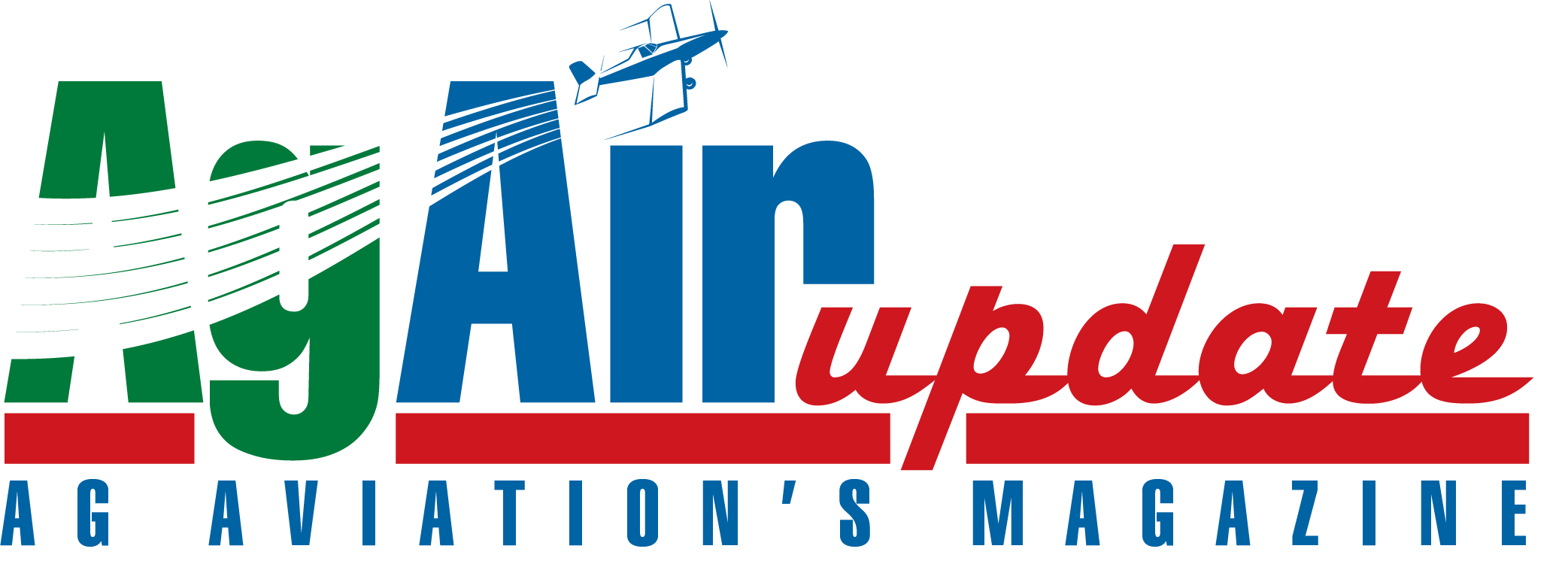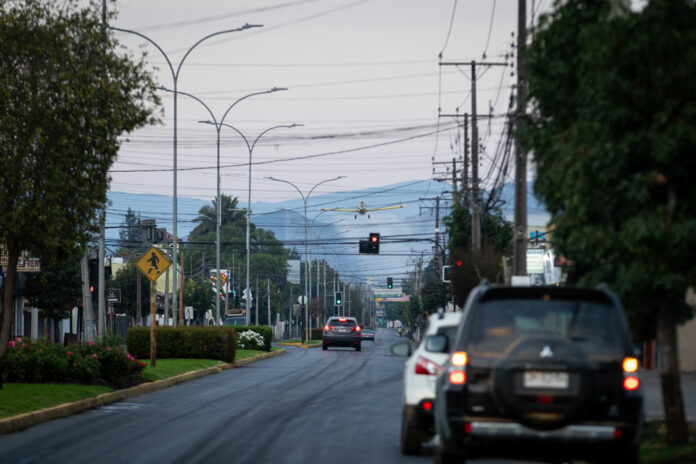Photos by Alexis Vidal Farías, Instagram: @alexisscan
The topic of the coronavirus COVID-19 is on everyone’s mind these days, worldwide. While seemingly every measure possible is being done to slow the spread of this dreadful disease, unprecedented steps are being taken in South America using ag-aircraft to spray for the virus.
That’s correct. An aerial application of an organic disinfectant manufactured in Luxembourg is being used to kill the virus on contact. Some critics point out aerial applications will not reach the virus that is inside buildings, cars and other protected spaces. This is true. However, killing the virus that is exposed, that could help slow it from spreading.
An operator in Chile, Aero Santa Cruz, owned and operated by Victor Gonzales, at 7 a.m. on Easter Sunday, made the country’s first aerial application for the treatment of coronavirus. In a WhatsApp interview with Victor, AgAir Update was told the details of the application. Aero Santa Cruz has been featured on two occasions in AgAir Update in the past 23 years.
Almost three weeks before the first cases of COVID-19 were reported in Santa Cruz, before the mandatory at home instructions were issued, and while attending a barbeque, Victor Gonzales’ adult children and their friends jokingly asked him, “why are you not spraying for the virus?” All laughed and Victor said, “Ok, you tell them to get the authorizations to do such a thing!”. It wasn’t long before the mayor of Santa Cruz, William Arévalo, heard of this conversation and contacted Victor, asking if an aerial application could be done. With the confidence of 40 years ag flying, Victor told the mayor he could make the application, but he did not know if it would work or not. Nobody knew.

Facebook Interview Video Here: (in Spanish)
Mayor Arevalo went right to work. He contacted the central health department (for Chile) to obtain the permission needed for an aerial application over the city. At the health department’s recommendation, a local supplier, GreenMax, donated 120 liters of BioClean for the application. Aero Santa Cruz donated the aircraft and its related expenses. The mayor also obtained clearance from the DGAC (Chile’s FAA). The mayor was told that with Victor’s experience and the country in a state of “catastrophe”, they would grant the waiver to fly over the city.

As for the application of a disinfectant over the city, permits were not needed from the health department specifically for the product as it is organic and also considered to be safe. However, the health department authorized the application of BioClean anyway.
With all permissions in place, Aero Santa Cruz’s AT-402B was loaded with 1,500 liters of water (396 gal) that included 10 liters (2.64 gal) of BioClean in the mix. No adjuvants were used. The application rate was set at 30 l/ha (3 gal/ac) using a 40-meter (131-foot) swath. The ambient temperature was 12°C (54°F) and 76% humidity.

Twelve applications were completed by 10:30 a.m. A total of 600 hectares (1,482 acres) were treated. Victor said Aero Santa Cruz did not receive any complaints. Actually, Santa Cruz citizens were standing in the streets waving white clothes as a symbol of “Thank You”. Many people called Victor to congratulate and thank him. He became the town hero. Other Chilean cities have been calling inquiring about a similar application.
The AT-402B was outfitted with 41 CP Products nozzles set up to create 200-micron droplets. Coverage was checked and found to be 15-20 droplets per square centimeter.

“Bill, I believe the application will make a difference. We know that we got good coverage over anything outside of buildings, cars and other enclosed spaces. BioClean is a safe product with a proven record of efficiency in other types of sanitation. I have been told that it only lasts for about 24 hours. The company is working on another similar product that uses nanoparticles of copper and may last up to 15 days. Any reduction in the amount of virus has to be a good thing,” explains Victor. “Furthermore, by using our Ag-Nav GPS systems, we are able to accurately treat the city in mass and very quickly, unlike ground machines that can only get to certain parts or drones that do not have the capacity.”
Aero Santa Cruz has been in business for over 30 years. It operates three ag-planes; one PT6A-34AG-powered AT-402B and two 260 hp Piper Pawnees. Primary crops treated are wine vineyards, avocados, walnut trees, wheat, and rice. The AT-402B was purchased in 2016 from AeroGlobo in Brazil and Lane Aviation in the U.S. Chilean Sebastian Ramirez of AeroGlobo delivered the aircraft.

When asked about Aero Santa Cruz’s precautions for Covid-19 at its operation, Victor responded, “It is our off-season, so there is not much going on here now. We are using two employees that work half a day before going home. The private airport, located within the family farm is a large area, so it is easy for them to maintain their social distancing. We also make sure all employees receive their annual, seasonal flu vaccines. Although that won’t stop Covid, maybe it will prevent them from having both the flu and Covid at the same time.”
Aero Santa Cruz is not the only company that has treated congested areas for the Covid-19 virus. Earlier in April, Aerotec of Argentina treated the Mendoza International Airport by air. A chlorine-based solution was used. The aircraft was a Cessna C-188 outfitted with rotary atomizers. See the video of that application below:
This all brings into focus the question: Why hasn’t this type of application been addressed in the U.S. and other parts of the world? Why wouldn’t reducing the number of viruses outside hinder the spread of the virus? One thing is for sure, it would be a bonanza of work for the aerial application industry!







